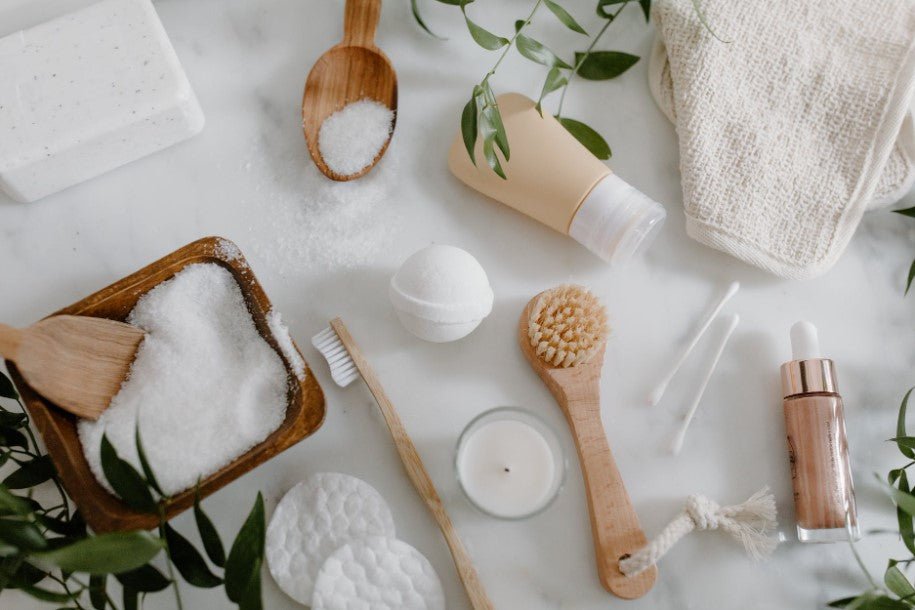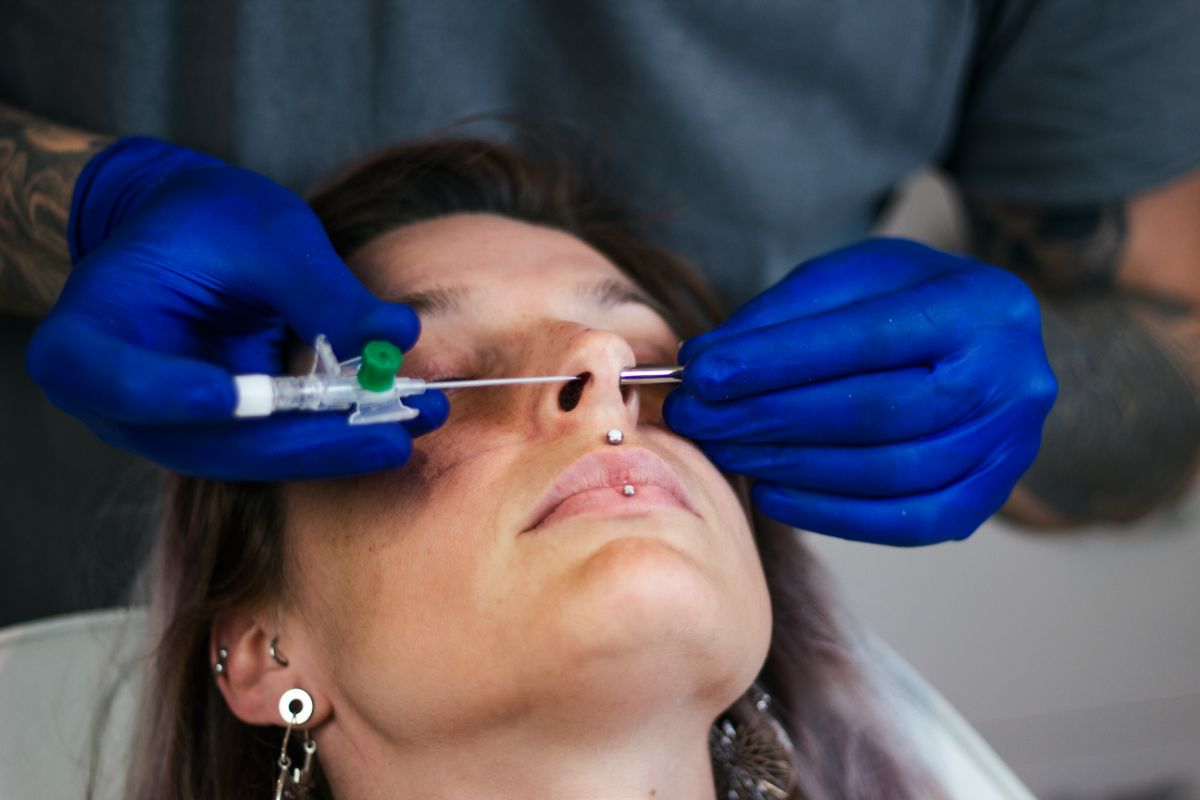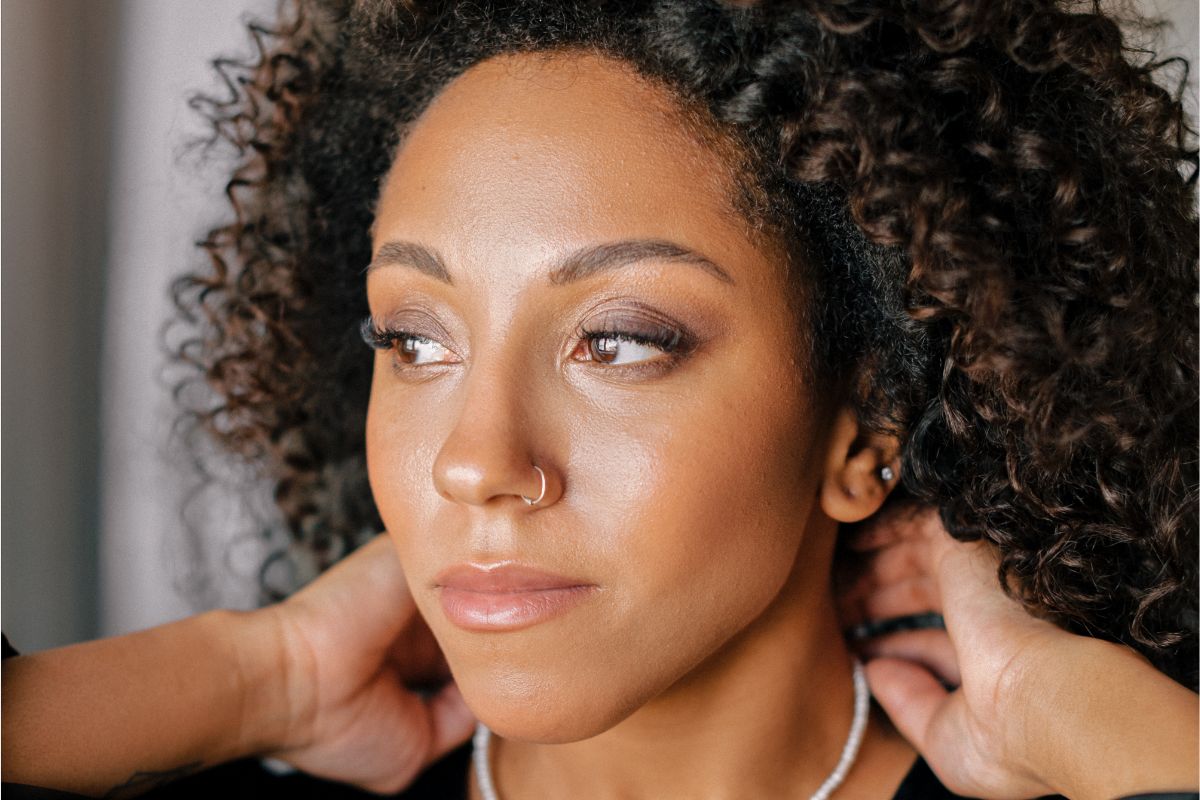Excited about your new piercing? It shows off your spark! It may feel like a luxury, but it’s important to keep in mind that every new piercing comes with responsibility. You have to make sure it heals properly in the months ahead. If you’re struggling to care for your piercing, keep reading for key do’s and don'ts of piercing aftercare that can help.
Aftercare Steps
Piercings have been performed for thousands of years. Given how commonplace they’ve become, it’s easy to overlook the fact that every new piercing is fundamentally a wound. That means no one with a new piercing can neglect the importance of aftercare. Neglect can cause unnecessary pain, prolong the healing process, and even cause your piercing to migrate or close.
We recommend these steps for proper aftercare:
Use Antibacterial Spray
If you see early signs of infection (swelling, angry-looking redness that’s just starting to spread), you can clean your piercings with an antibacterial spray.
As an important first step to prevent infection, before you clean your piercing, wash your hands to keep the piercing germ free. Then, with the help of a cotton ball, remove any loose flakes formed due to tissue accumulation, and clean the piercing site. (Don’t remove any flaking that is still firmly attached.) If you recognize symptoms of serious infection, we recommend seeing your doctor.
If you choose to use antibacterial spray to treat a minor infection, simply gently apply the spray to the piercing. If you choose not to use any aftercare product to clean and treat your piercing, rinse it gently with warm, distilled water, and then dry it with a clean paper towel.

Use the Right Metal for Jewelry
Some people are allergic to nickel, and the reaction can be quick to appear. To avoid triggering an allergy — especially when your piercing is just starting to heal — choose starter jewelry made up of 14k gold (not gold-plated). You can also choose Titanium. Both work well for all skin types.
Maintain Hygiene
One of the hygiene myths surrounding new piercings is that people should avoid bathing or showering. But experts actually recommend washing up regularly to keep the piercing hydrated and free from crusting and flaking by washing away dirt and dried fluid, which can accumulate.
Consult Your Doctor
A piercing is a wound everyone should take seriously. If you experience a stubborn or aggressive infection or an allergic reaction, contact your doctor.
Things to Avoid in Piercing Aftercare
Excessive Cleaning
Too much of anything isn’t good, right? The same goes for your piercings. Piercings require regular cleaning (twice a day is recommended). If a piercing is cleaned more than twice a day, that can disrupt the healing process, because the skin will end up becoming dry and irritated.
Wearing Tight-Fitting Jewelry
Body piercings need to breathe, because air circulation enhances the healing process. Plus, because tight-fitting jewelry doesn't move, it can result in irritation, swelling, and even blood clotting.
Removing Jewelry Too Soon
Removing piercing jewelry too early causes closure of the piercing hole, which adds to the frustration of the discomfort you’ve already endured, and the money wasted. To avoid closure, let the piercing heal entirely. But if you absolutely can't wait, allow at least six to eight weeks before removing your starter jewelry.
Using Harmful Aftercare Products
New piercings can become irritated by harmful chemicals used for cleaning. Physicians strongly recommend avoiding these products:
- Alcohol: Never use alcohol on your piercing, especially if you have dry or eczema-prone skin, because alcohol absorbs water away from the skin, harming the epidermal layer's protection.
- Hydrogen peroxide and related products: Although many people think of hydrogen peroxide as a mild antiseptic, in fact, it should not be used on the skin because it can decrease the body's natural immunity and actually make wounds worse. For piercings, hydrogen peroxide can irritate the piercing site and cause itchiness.

- Iodine: Do not use Iodine on your piercing. If you make your own saline solution, use only sea salt (not iodized salt) because iodized salt can irritate skin.
Aftercare Products to Put in Your Cart
If you’re experiencing pain and discomfort, or you want to ensure your piercing is safely and thoroughly clean, consider the following types of products:
- Oil-Based Products: Products that contain essential oils can be a good choice. One essential oil that can treat piercings is tea tree oil. It has natural antiseptic and anti-inflammatory properties. If you cannot find treatment products that contain tea tree oil, many piercers recommend using coconut or almond oil.
- Saline Solution Products: Saline solution is most recommended by medical experts. It’s much less expensive than other products and has a soothing effect on the skin.
Wrapping It Up
Experts recommend cleaning your piercing twice a day. Always clean your piercing with clean hands. For easy cleaning, our experts recommend Dr. Piercing Aftercare swabs, which contain a saline solution to clean and soothe piercings. Dr. Piercing Aftercare swabs are FDA approved.
To avoid piercing infections, in addition to using Dr. Piercing Aftercare products, keep your piercing hydrated, and rinse it thoroughly after any physical activity. If you’re unable to clean your piercing regularly as recommended, you can apply Dr. Piercing Aftercare medicated spray or another commercially available aftercare product to avoid infections.





